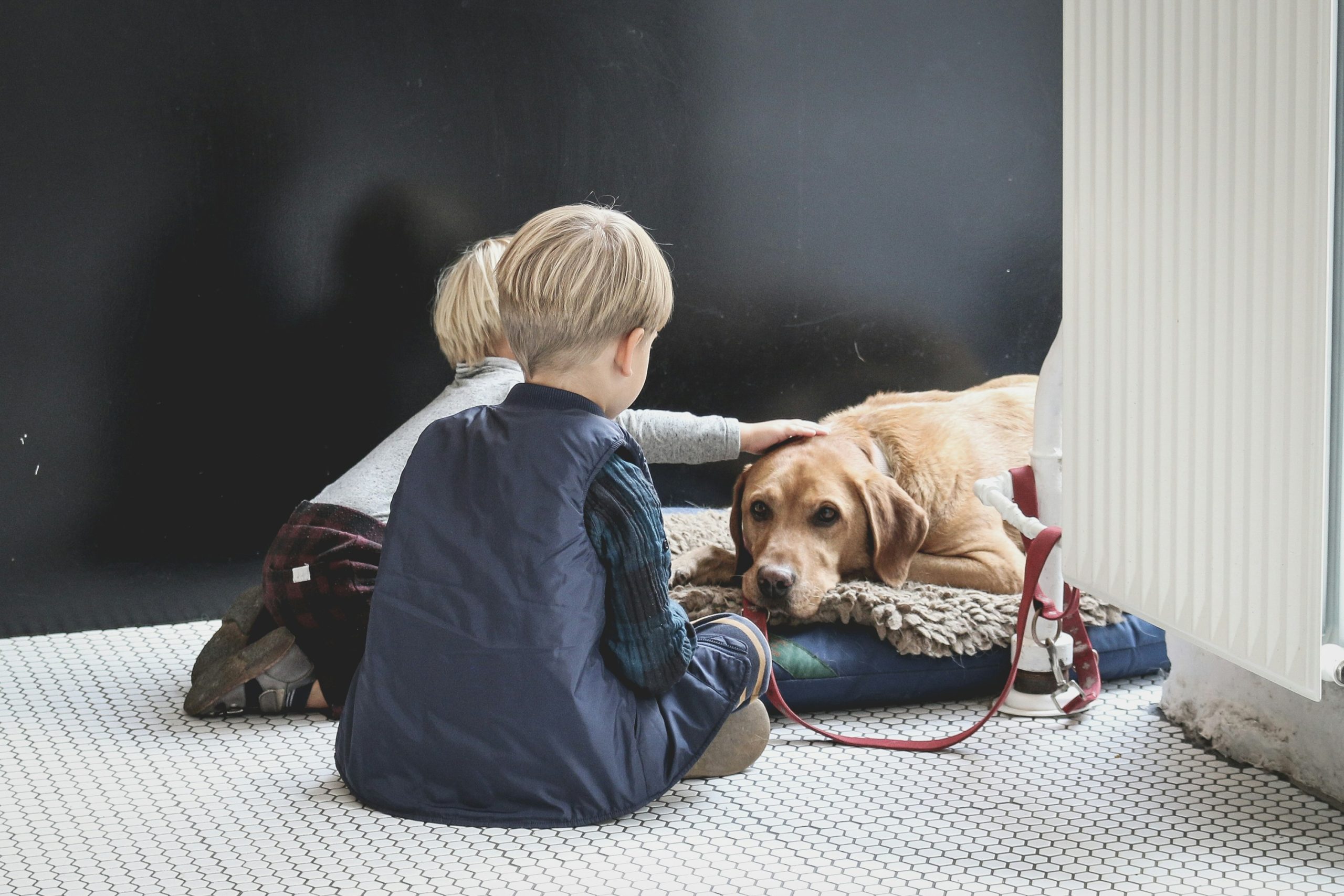The Transformative Power of Dogs in Childrens Therapy
Discover the benefits of using dogs as therapy for children, including how they provide emotional support, lower cortisol levels, and assist children with disabilities, as well as the role of animals in counseling and therapy for childrens mental health.

Overview of Dogs as Therapy for Children
Dogs serve as invaluable sources of emotional support and therapy for children in various ways. For instance, spending time with dogs has been found to have a calming effect on children, significantly lowering their levels of stress. A study conducted with 149 8- and 9-year-olds in Britain revealed that sessions with a trained dog and its handler led to lower stress levels in the children, surpassing the effectiveness of guided relaxation sessions. This highlights the unique ability of dogs to provide emotional support and comfort to children, making them essential in therapy and mental health interventions for young individuals.
In addition to their calming effect, therapy dogs also offer a sense of companionship and trust to children, creating a safe and nurturing environment for them to express their emotions and navigate challenging situations. For example, certified service dogs like Tippy have been instrumental in helping children with various challenges, including autism and learning disabilities. In one case, Tippy assisted a 7-year-old girl named Caroline with autism and sensory processing issues during a traumatic dental experience, enabling her to stay calm and complete her dental exam. This showcases how therapy dogs can be tailored to meet specific needs and provide tailored support for children with different mental health and developmental requirements.
The Calming Effect of Dogs on Children
The calming effect of dogs on children is well-documented and has been proven through various studies. Spending time with dogs has been found to significantly lower children’s levels of cortisol, a hormone associated with stress. For example, a study involving 149 8- and 9-year-olds in Britain revealed that the group that spent time with a trained dog and its handler showed lower stress levels compared to other groups, showcasing the positive impact of dog-assisted interventions on children’s emotional well-being.
Furthermore, the comparison of the effectiveness of dog-assisted interventions and guided relaxation sessions underscores the unique ability of dogs to provide emotional support for children. This study found that dog-assisted interventions were more effective than guided relaxation sessions in lowering stress levels, indicating the powerful impact that dogs can have on children’s mental health. These findings emphasize the therapeutic potential of dogs in helping children manage stress and anxiety, highlighting the importance of incorporating dog-assisted interventions in therapeutic settings for children.
 Various Types of Therapy Dogs
Various Types of Therapy Dogs
Facility dogs, also known as assistance or service dogs, play a vital role in assisting children with various challenges such as autism and learning disabilities. These dogs are trained to provide specific support and comfort to children facing physical, mental, or emotional obstacles. For example, Caroline, a 7-year-old with autism and sensory processing issues, had a traumatic experience at the dentist. Her occupational therapist suggested bringing her certified service dog, Tippy, to her next appointment. Tippy helped Caroline stay calm and complete her dental exam, showcasing the valuable role of facility dogs in supporting children with different needs.
In addition to facility dogs, horses are also utilized in hippotherapy and therapeutic riding to help children with developmental delays and sensory issues. This form of therapy involves activities with horses and aims to improve coordination, balance, and strength while providing emotional and psychological benefits. For instance, working with horses teaches children discipline and provides a sense of mastery, contributing to their overall well-being and personal development. These examples highlight the diverse ways in which animals, including dogs and horses, are incorporated into therapy programs to aid children in overcoming various challenges.
Moreover, it’s crucial to differentiate between therapy dogs and service dogs for children with disabilities. While therapy dogs offer emotional support and comfort to individuals in therapeutic settings, service dogs are specifically trained to perform tasks for a person with a disability. Understanding these distinctions is essential in recognizing the unique roles each type of assistance animal plays in supporting children’s needs, whether it’s providing comfort, aiding with specific tasks, or promoting emotional well-being.
Successful Dog-Assisted Therapy Programs for Children
Therapy dogs have been instrumental in the success of various programs aimed at helping children cope with emotional and psychological challenges. For example, K-9 Reading Buddies of the North Shore provides certified therapy dog programs for children with reading disabilities, where trained therapy dogs offer non-judgmental support and encouragement as children practice their reading skills. These therapy sessions not only help children improve their reading abilities but also boost their confidence and self-esteem, fostering a positive attitude towards learning.
In addition, therapy dogs have proven to be effective in reducing stress levels in children with and without special educational needs. A study conducted by a professor in developmental psychology at the University of Lincoln in England found that sessions with a dog and its handler significantly lowered children’s levels of cortisol, a hormone associated with stress. This intervention was found to be more effective than guided relaxation sessions, highlighting the unique and impactful role of therapy dogs in promoting emotional well-being among children. The presence of these specially trained dogs provides a sense of comfort and security, creating a safe space for children to express their emotions and work through their challenges, ultimately contributing to their overall mental health.
Furthermore, the use of therapy dogs has expanded to support children with disabilities, including those with physical, emotional, and mental disabilities. Therapy dog organizations offer specialized services to individuals in need, providing certified therapy dogs for sessions that aim to improve the quality of life for children with disabilities. These programs demonstrate the remarkable impact of therapy dogs in enhancing the overall well-being of children and fostering a supportive environment for their emotional and psychological growth.
Benefits of Dogs for Children with Disabilities
Therapy dogs play a crucial role in helping to reduce stress levels by controlling the release of cortisol in children with disabilities. These dogs provide comfort and support for children with various mental, physical, and emotional disabilities, highlighting the diverse benefits of animal-assisted therapy for this demographic.
Moreover, therapy dog organizations provide certified therapy dogs for sessions, which are specifically trained to work with children with disabilities. For example, K-9 Reading Buddies of the North Shore offers certified therapy dog programs for children with reading disabilities, where trained dogs help soothe and calm children with learning challenges, making the learning experience more enjoyable and effective. These therapy dogs create a safe and non-judgmental environment that helps children with disabilities build their confidence and reduce anxiety.
Additionally, therapy dogs have been observed to facilitate social and personal development for kids with disabilities. For instance, children with autism spectrum disorders may struggle with social interaction, but the presence of a therapy dog can encourage them to engage in social activities and develop their communication skills. This positive interaction can have a profound impact on their emotional well-being and sense of belonging, showing the extensive therapeutic benefits that dogs can offer to children with disabilities.
The Role of Animals in Counseling and Therapy for Children
Therapy dogs play a crucial role in supporting the therapeutic alliance between counselors and children. For instance, in cases where a child is hesitant to engage with a counselor, the presence of a therapy dog can often initiate interaction by providing a sense of comfort and safety, ultimately helping the child feel more at ease to communicate and open up about their emotions and experiences. Additionally, the unconditional love and nonjudgmental nature of therapy dogs can offer supplemental social support to children during counseling sessions, creating a nurturing environment where they feel understood and accepted.
Furthermore, in situations where a child experiences a crisis during a session, therapy dogs have been observed to intervene by providing emotional comfort and helping to regulate the child’s emotions, thereby contributing to a quicker recovery from the distressing situation. This intervention can be particularly beneficial for children with anxiety, trauma, or stress-related disorders, as the presence of a therapy dog can help them feel more grounded and supported during challenging moments. Moreover, as co-therapists, therapy dogs can assist mental health professionals in creating a warm and inviting atmosphere during sessions, leading to more effective and positive therapeutic outcomes for children.
In the field of animal-assisted counseling, there has been a notable increase in awareness and interest in the potential benefits of incorporating animals into therapy sessions for children’s mental health. This trend emphasizes the importance of humane education and the ethical treatment of animals, contributing to the overall well-being of both the children and the animals involved. As a result, animal-assisted counseling is gaining recognition as a valuable complementary therapy for young children, offering a unique and holistic approach to addressing mental health issues in a compassionate and effective manner.


